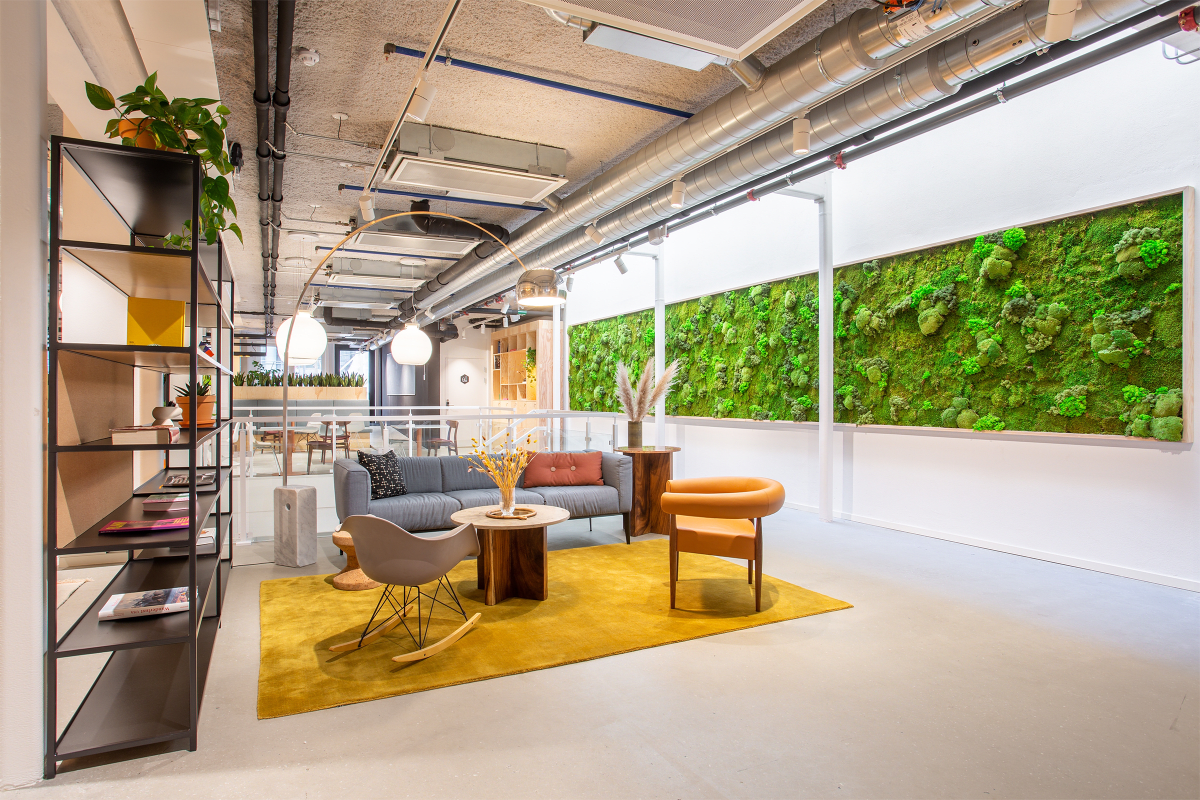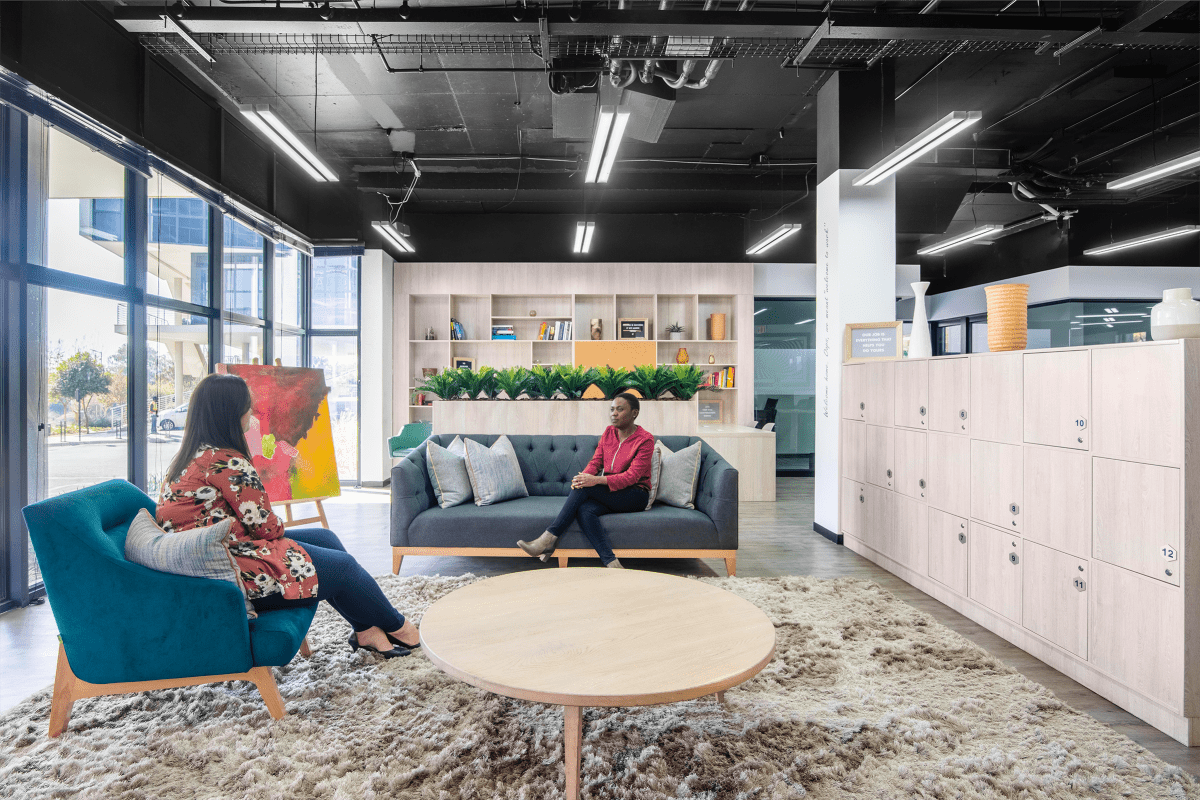Hybrid is what employees want, but it also brings numerous benefits to businesses. We look at three corporations who’ve already embraced the hybrid model and the advantages they’ve gained by doing so.
With the majority of the world’s biggest companies embracing hybrid working, it’s clear that demand for flexible office space is soaring. In the next five years, the proportion of professional employees working in a hybrid model will pass 50%, bringing a number of major benefits to both employers and employees.
Above all, hybrid is what employees want, and that means it’s a key offering for businesses who want to attract top talent. An IWG survey of 2,000 office workers (discussed in this white paper) found that nearly half of respondents would only consider roles that offer hybrid working. In a similar vein, Linkedin research found that more than a third of UK workers “would quit if told to return to office full-time”.
There’s good reason for it: IWG research shows that workers are happier and healthier when commuting less. But crucially, it’s not just the employees themselves who benefit when a business offers hybrid. Companies enjoy an uptick in productivity with hybrid, at the same time as helping them meet their ESG targets.
The businesses already benefiting from hybrid
To illustrate how businesses can benefit from hybrid, we have highlighted three large corporations who’ve already made the switch and empowered their workers to split their time between a local flexspace close to their homes and central headquarters.
1. NTT
In 2021, IT and telecoms company NTT embraced the hybrid work model, signing a deal to give its 300,000 employees access to IWG workspaces all over the world.
At the time, Arvind Kumar, NTT's Global Vice President, explained how the move would give employees the flexibility to work in a way that suited them: “What we were looking for, that IWG could give us, was a solution that’s flexible – accommodating the executive team, the consultant and the back office person who wants to come in and hold an important meeting.”
Kumar said that this flexibility would also help future-proof his company’s operations.
“In the world of tomorrow at NTT, we’ll never have one offer that fits all. We’re going to have a hybrid environment that needs to work for a host of different people and purposes."
He talked of the financial benefits too, recognising that hybrid helps “operating companies manage their costs, manage their real estate portfolios, save money, add value and create experience.”
2. Cisco
Technology giant Cisco already had a long-established tradition of flexible working when it partnered with IWG to embrace hybrid. Cisco estimates that it’s saved in the region of $500m over the last five years, much of which comes from the reduction in the costs of its property portfolio. It’s been able to invest these savings into new technology to facilitate hybrid working.
When Cisco partnered with IWG in 2021, Vice President of Workplace Solutions Christian Bigsby explained that the company would use flexspace to tap into key hubs for emerging talent, which move too fast to wait for a permanent office to become available. Flexspace with hybrid working enables the corporation to establish a rapid physical presence in these areas and avoid missing out on lucrative opportunities.
“If you think about the way employers can now target the best possible talent, it isn’t dependent on specific geographies,” Bigsby commented. “If we really take advantage of that, we’re going to go after the best possible talent, wherever that market is – and we don’t need to have a headquarters within a 30-mile commute.”
3. Deloitte
Professional services firm Deloitte have been early adopters of the hybrid model, commenting that turning to hybrid has allowed them to offer “personal choice, flexibility, and predictability” as well as to “propel our global commitment to achieving net-zero carbon emissions by 2030” by reducing travel and commuting time.
To achieve this, Deloitte has been using a number of IWG offices around the world, one of which is Spaces Granville in Vancouver, Canada. Managing partner for Deloitte British Columbia Etienne Bruson explained the rationale: “This workspace aligns with our national strategy and vision for creating a more collaborative and inclusive workplace by using design and technology to remove physical and hierarchical barriers, which increases the flow of ideas and innovation.”
“Our move to Spaces – a ‘non-traditional’ location for a professional-services firm – is a milestone in our journey and a commitment to flexibility, innovation and the impact of the creative economy on our firm,” Bruson added.
Embracing a new way of working
Standard Chartered, Cisco and Deloitte are just three of the firms already enjoying the benefits of adapting to the new world of work. The hybrid model is now the new norm, and it’s what employees and businesses alike are seeking. Fail to keep pace with this rapidly changing landscape, and businesses risk losing talent and falling behind.
In the fast-evolving world of work, IWG provides flexible workspaces to meet the needs of all businesses, big or small. With offices all around the globe and a variety of workspace types, IWG makes it easy for companies to set up work locations near their employees' homes, no matter where they are.
Discover how an IWG partnership can make it easier for you to find the perfect solution for your clients and increase your chance of making a sale.






